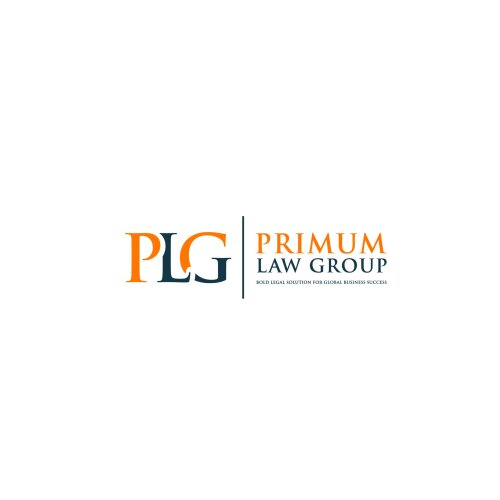Best Data Center & Digital Infrastructure Lawyers in United States
Share your needs with us, get contacted by law firms.
Free. Takes 2 min.
Or refine your search by selecting a city:
List of the best lawyers in United States
About Data Center & Digital Infrastructure Law in United States
Data center and digital infrastructure law in the United States covers the legal framework governing facilities, technologies, and services that enable data storage, processing, and distribution. These include physical data centers, cloud computing environments, fiber optics, network connectivity, and related digital services. With the rapid expansion of digital economy and reliance on cloud computing, regulatory and compliance issues, security standards, and real estate considerations have made this an increasingly significant legal field.
Legal matters related to data center and digital infrastructure may involve contracts for leasing or purchasing space, compliance with data privacy laws, cybersecurity obligations, environmental regulations, and service level agreements. Ensuring that all aspects of digital infrastructure are legally compliant is crucial for businesses, technology providers, and any organization handling large amounts of digital data.
Why You May Need a Lawyer
There are several situations where expert legal advice becomes necessary in the context of data centers and digital infrastructure. These include:
- Negotiating, drafting, or reviewing contracts for data center leases, colocation, or managed services
- Understanding and complying with federal and state data privacy, security, and breach notification laws
- Handling disputes related to service level agreements or contractual breaches
- Managing risks associated with cyber attacks, outages, or loss of data
- Guiding mergers, acquisitions, or divestitures involving data center assets
- Securing permits and approvals for facility development or expansion
- Ensuring compliance with environmental, utility, and zoning regulations
- Addressing cross-border data transfer and international compliance
Legal issues in this field can be complex and fast-evolving, making professional guidance essential to avoid costly mistakes and ensure your interests are protected.
Local Laws Overview
Key aspects of United States law affecting data center and digital infrastructure include:
- Data Privacy and Security: Various federal laws such as HIPAA, GLBA, and the Computer Fraud and Abuse Act may apply, depending on the industry. In addition, numerous states have enacted their own privacy laws, with California's Consumer Privacy Act (CCPA) being among the most comprehensive.
- Cybersecurity Regulations: The Cybersecurity Information Sharing Act and sector-specific rules require certain protections against data breaches and cyber threats. Many states have breach notification laws, mandating timely notification to affected parties and regulators.
- Real Estate and Zoning: Local zoning laws dictate where data centers can be built, while real estate laws govern leases, property rights, and land use.
- Environmental Compliance: Data centers must comply with environmental regulations related to energy use, emissions, and waste management. Some jurisdictions offer incentives for energy-efficient operations.
- Contract Law: Service level agreements, maintenance contracts, and vendor/supplier contracts are legally binding documents requiring careful drafting and negotiation.
- Tax Incentives and Regulation: Some states offer tax breaks or incentives for data center investments while others may impose special taxes or regulatory fees.
Because federal and state laws can differ and frequently change, it’s important to stay updated or seek legal counsel on any jurisdiction-specific requirements.
Frequently Asked Questions
What is a data center in the legal sense?
A data center is a facility used to house computer systems and associated components, such as telecommunications and storage systems. Legally, it is subject to regulations regarding property, data privacy, security, and environmental standards.
What laws apply to the protection of data stored in US data centers?
Data stored in US data centers is governed by a combination of federal and state data privacy and security laws. Industry-specific regulations, such as HIPAA for health data, may also apply.
Do I need a contract for data center services?
Yes, contracts are critical for outlining service levels, uptime guarantees, liability, data management, termination rights, and dispute resolution. Legal counsel can help ensure these terms protect your interests.
Can US data centers hold data from foreign entities?
Yes, but storing foreign data in US centers may trigger compliance obligations under both US and foreign laws, such as the EU's General Data Protection Regulation. Legal advice is recommended for cross-border arrangements.
Which environmental regulations affect data centers?
Data centers must comply with federal and state environmental laws regarding energy consumption, cooling systems, electronic waste, and emissions. Local ordinances may also apply.
What should I do if there is a data breach in my data center?
You must follow state and federal breach notification laws, which may require notifying affected individuals, regulators, and sometimes the public. Legal counsel can guide you through compliance and mitigation.
What role do zoning laws play in data center development?
Zoning laws determine where data centers can be built, regulate their size, and may impose restrictions related to environmental impact, noise, or appearance. Early legal consultation is advised in development projects.
Are there tax benefits for building data centers?
Some states and municipalities offer tax incentives, credits, or exemptions for building or upgrading data centers. Eligibility criteria vary, so professional guidance is important.
What are colocation agreements?
Colocation agreements allow multiple clients to rent space for their servers in a third-party data center. These agreements define service levels, access rights, responsibilities, and liability allocations.
How can a lawyer help with digital infrastructure contracts?
A lawyer can draft, review, and negotiate contracts to address risk allocation, regulatory compliance, termination provisions, and ensure your business interests are protected.
Additional Resources
A variety of organizations and governmental bodies provide information relevant to data center and digital infrastructure law in the US:
- United States Department of Commerce
- National Institute of Standards and Technology (NIST)
- Federal Trade Commission (FTC)
- Environmental Protection Agency (EPA)
- State Public Utility Commissions
- International Association of Privacy Professionals (IAPP)
- Data Center Coalition
- Uptime Institute
- Local and State Economic Development Agencies
These organizations publish compliance guidelines, industry standards, and best practice recommendations for anyone involved in data centers or digital infrastructure.
Next Steps
If you require legal assistance concerning data center and digital infrastructure matters, consider the following steps:
- Identify your specific legal needs, such as contract review, compliance advice, or dispute resolution.
- Gather all relevant documents and details about your issue or project.
- Consult with a lawyer or law firm with experience in technology, data privacy, and infrastructure law.
- Ensure your legal counsel is knowledgeable about both federal and local laws that apply to your situation.
- Regularly review and update your compliance and risk management strategies as regulations evolve.
Taking a proactive approach and involving legal experts early in the process can help safeguard your organization’s digital assets and infrastructure, ensure compliance, and prevent costly disputes.
Lawzana helps you find the best lawyers and law firms in United States through a curated and pre-screened list of qualified legal professionals. Our platform offers rankings and detailed profiles of attorneys and law firms, allowing you to compare based on practice areas, including Data Center & Digital Infrastructure, experience, and client feedback.
Each profile includes a description of the firm's areas of practice, client reviews, team members and partners, year of establishment, spoken languages, office locations, contact information, social media presence, and any published articles or resources. Most firms on our platform speak English and are experienced in both local and international legal matters.
Get a quote from top-rated law firms in United States — quickly, securely, and without unnecessary hassle.
Disclaimer:
The information provided on this page is for general informational purposes only and does not constitute legal advice. While we strive to ensure the accuracy and relevance of the content, legal information may change over time, and interpretations of the law can vary. You should always consult with a qualified legal professional for advice specific to your situation.
We disclaim all liability for actions taken or not taken based on the content of this page. If you believe any information is incorrect or outdated, please contact us, and we will review and update it where appropriate.
Browse data center & digital infrastructure law firms by state in United States
Refine your search by selecting a state.












